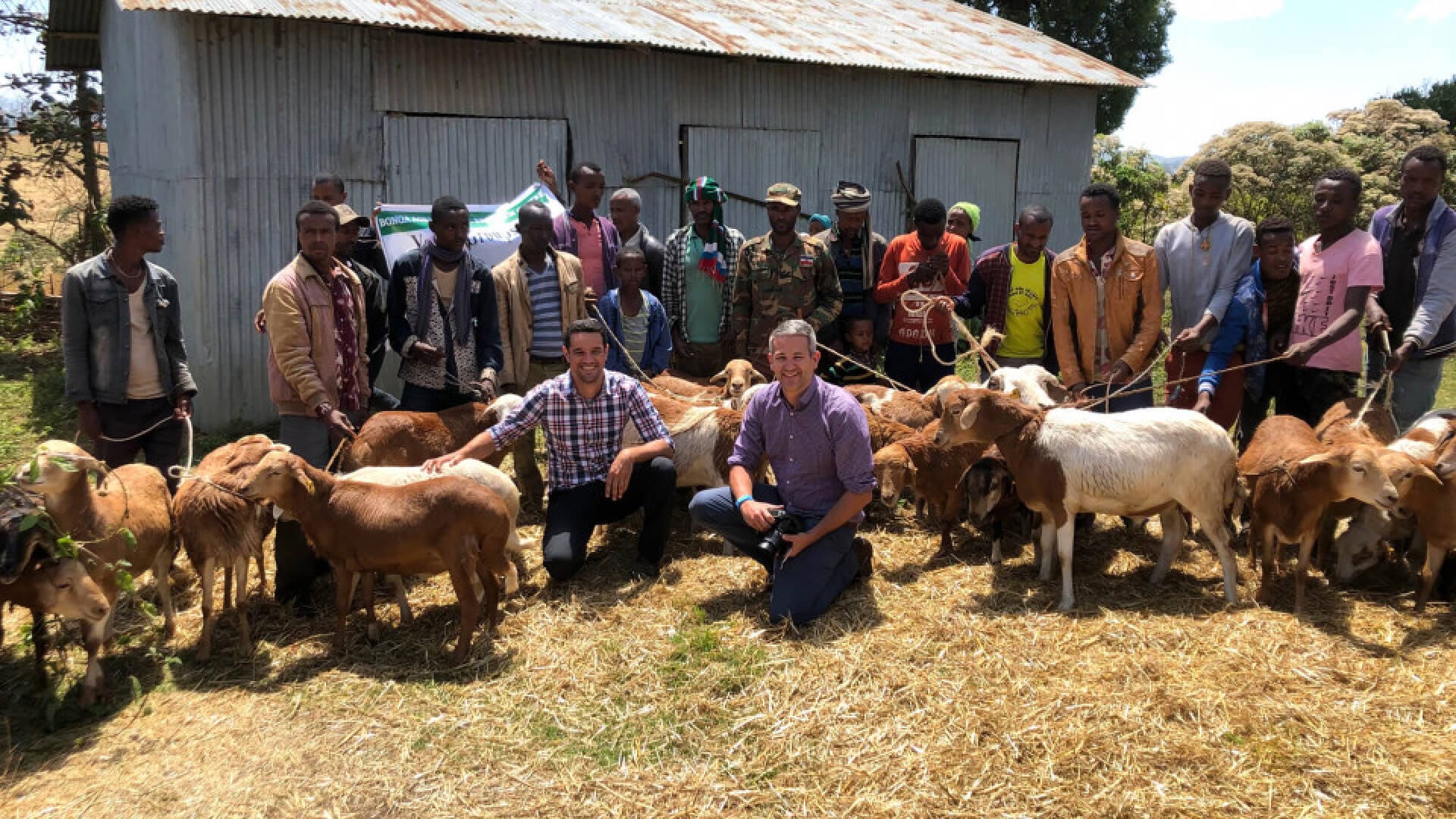“Farmers and researchers involved in community-based breeding programmes are now using data captured from across different countries in Africa to select better breeding rams and bucks, thus increasing productivity and incomes for thousands of households.”

Bruno Santos
Key Information
In 2018, AbacusBio joined the Community-based Breeding Programmes (CBBPs) initiative in Africa, an International Center for Agricultural Research in the Dry Areas (ICARDA) project to address low productivity among smallholder sheep and goat farmers. As part of that project, an AbacusBio-developed decision-support tool called Dtreo was introduced to provide farmers with the information they need to drive genetic improvement in their livestock.
Community-based breeding programmes
Nearly two-thirds of Africa’s population live in rural areas and rely on small-scale agriculture to live. The CBBPs aim to improve the livelihoods of smallholder sheep and goat farmers in various African countries by implementing sustainable breeding schemes within their low-input production systems. The programme will achieve this objective through:
- Genetic improvement,
- Community engagement, and
- Building knowledge and capacity around breeding, production and animal husbandry, so the benefits of breeding programmes are embedded, long-term.



Low productivity challenges
One of the biggest challenges for the small-ruminant (sheep and goat) industries in Ethiopia and Tanzania is low productivity, due to:
- High lamb and kid mortality,
- Low growth rates, and
- Long lambing and kidding intervals.
Harnessing the power of genetics
The CBBPs in Ethiopia are a partnership between ICARDA, the Ethiopian Government, and several other local and international organisations. In 2018 AbacusBio, supported by the New Zealand Ministry of Foreign Affairs and Trade (MFAT), became involved to introduce robust technology for collecting and processing performance data to drive genetic improvement.
The AbacusBio team used data capture and analysis platform Dtreo to consolidate existing data and create reports for the farmers on performance metrics, such as liveweights, growth curves and lifetime productivity. The farmers can then identify (a) the more productive animals to retain and breed from and (b) specific animals to sell – the outcome being higher productivity and income.
Dtreo is cloud-based, with an offline mobile application, making it easy to use remotely and ideal for data sharing between collectives of farmers and with the CBBP technical team.
Dtreo mobile app
AbacusBio consultants Mark Teviotdale and Bruno Santos have been visiting Ethiopia and Tanzania since March 2018 to:
- Train farmers and local researchers in the use of Dtreo, and
- Scope out requirements for the mobile app to support the platform and also enhance communications between farmers and the CBBP team.
Project outcomes
Since the CBBPs began, household incomes have risen an average of 20% for 5000-plus households across more than 200 villages.
Dtreo has allowed the programme to be scaled up to impact many more households. How? By providing an easy-to-access tool for robust data management that will continue to serve these communities in the long-term.
For AbacusBio, the project has been an excellent opportunity to learn how to better engage with many different people working in different environments and backgrounds. It has been an enjoyable and rewarding challenge.
More information
AbacusBio Dtreo – empowering data-driven decisions in agriculture
Research article: How to succeed in implementing community-based breeding programs: Lessons from the field in Eastern and Southern Africa [Frontiers in Genetics]


